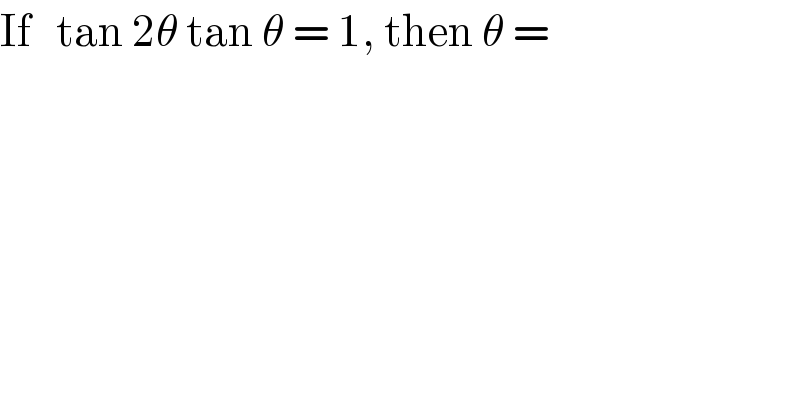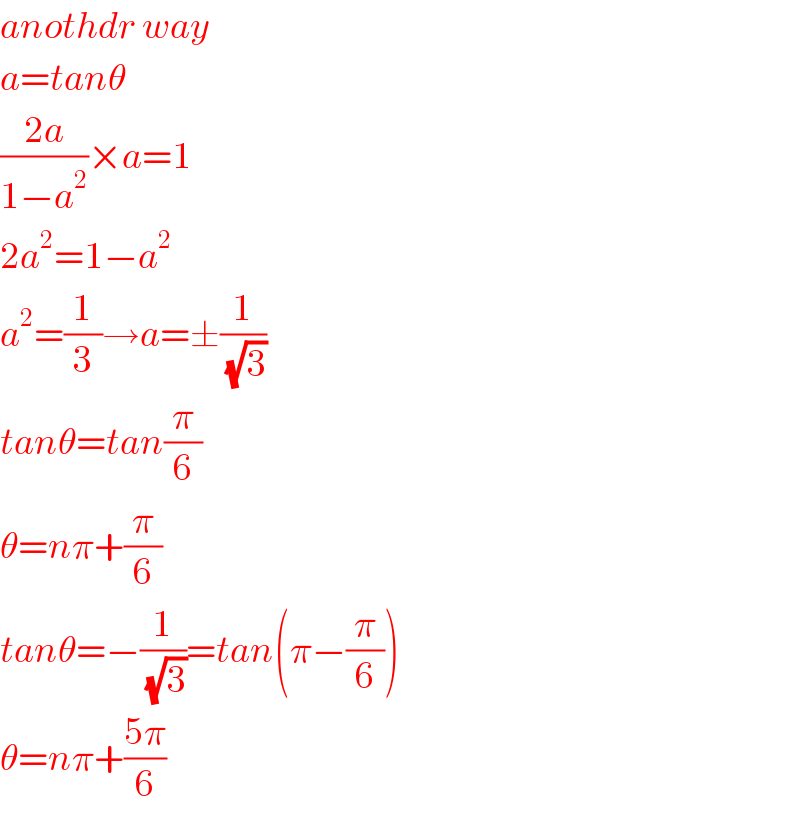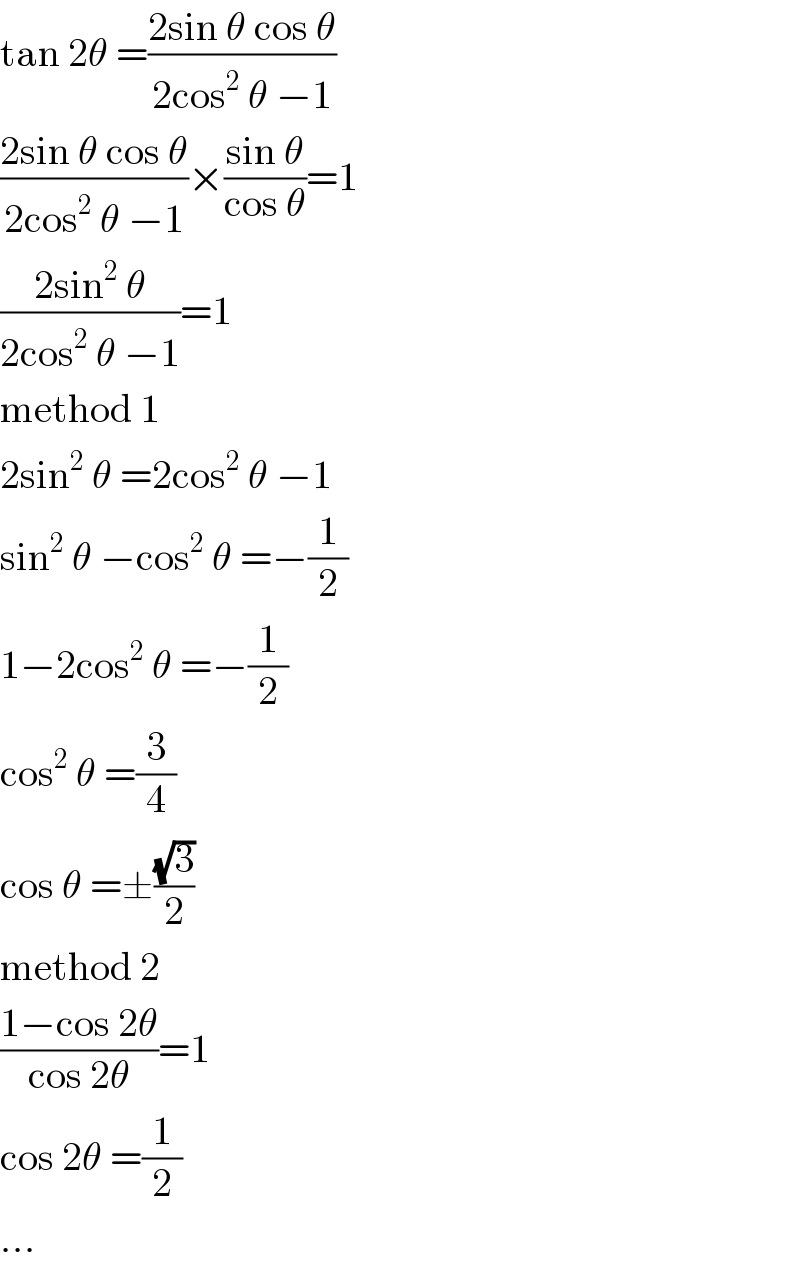
Question and Answers Forum
Question Number 62983 by hovea cw last updated on 27/Jun/19

Answered by Hope last updated on 27/Jun/19
![tan2θ=cotθ=tan((π/2)−θ) formula [tanα=tanβ α=nπ+β] so 2θ=nπ+((π/2)−θ) 3θ=(((2n+1)π)/2)→ θ=(((2n+1)π)/6)](Q62988.png)
Commented by mr W last updated on 27/Jun/19

Commented by Hope last updated on 27/Jun/19

Answered by Hope last updated on 27/Jun/19

Commented by mr W last updated on 27/Jun/19

Answered by MJS last updated on 27/Jun/19

